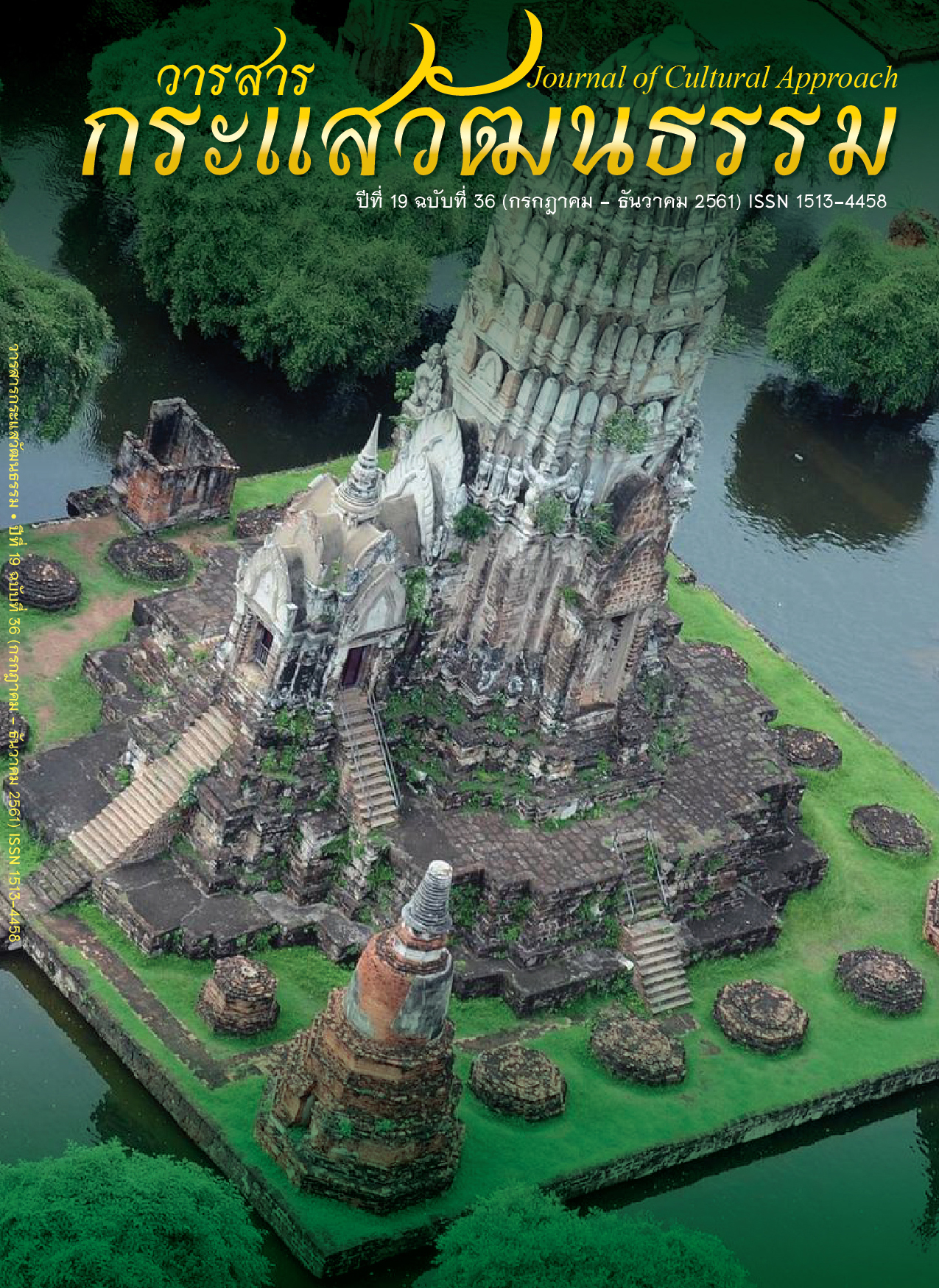Key Success Enhancing Competencies for Human Resource among Tour Operators for Incentive Travel
Main Article Content
Abstract
Despite recognizing the tour operation business for incentive travel is a fast growing and competitive market, numerous cases show many tour operators also face serious problems in furthering its success. Therefore, one of the key success factors to gain a competitive advantage is preparing the right person with the right skills and providing them the right direction to work in such as a competitive tourism business. This study explored required core competencies of staff in the tour operation business for incentive travel. A questionnaire was used to collect data on perceptions of tour operator staff concerning their required specific skills and competencies to provide services and manage a tour business. A total of 400 tour operators participated in the study. The findings showed that human resource in the tour operation business for incentive travel was crucial and a must to have tourism work related skills, tour knowledge and the right personality for providing services. These three factors were required to enhance human resource in this type of business. Therefore, possible ways to enhance these skills could be providing them the opportunity to acquire knowledge and skills through trainings, seminars and providing them opportunities for reflection. This study focused on presenting gaps regarding important and necessary skills for people in the tourism business to manage a successful business.
Article Details
Proposed Creative Commons Copyright Notices
1. Proposed Policy for Journals That Offer Open Access
Authors who publish with this journal agree to the following terms:
- Authors retain copyright and grant the journal right of first publication with the work simultaneously licensed under a Creative Commons Attribution License that allows others to share the work with an acknowledgement of the work's authorship and initial publication in this journal.
- Authors are able to enter into separate, additional contractual arrangements for the non-exclusive distribution of the journal's published version of the work (e.g., post it to an institutional repository or publish it in a book), with an acknowledgement of its initial publication in this journal.
- Authors are permitted and encouraged to post their work online (e.g., in institutional repositories or on their website) prior to and during the submission process, as it can lead to productive exchanges, as well as earlier and greater citation of published work (See The Effect of Open Access).
Proposed Policy for Journals That Offer Delayed Open Access
Authors who publish with this journal agree to the following terms:
- Authors retain copyright and grant the journal right of first publication, with the work [SPECIFY PERIOD OF TIME] after publication simultaneously licensed under a Creative Commons Attribution License that allows others to share the work with an acknowledgement of the work's authorship and initial publication in this journal.
- Authors are able to enter into separate, additional contractual arrangements for the non-exclusive distribution of the journal's published version of the work (e.g., post it to an institutional repository or publish it in a book), with an acknowledgement of its initial publication in this journal.
- Authors are permitted and encouraged to post their work online (e.g., in institutional repositories or on their website) prior to and during the submission process, as it can lead to productive exchanges, as well as earlier and greater citation of published work (See The Effect of Open Access).
References
[2] Celuch, K. & Davidson, R. (2008). Human Resources in the Business Events Industry. In J. Ali-Knight, M. Robertson, A. Fyall & A. Ladkin. International Perspectives of Festivals and Events: Paradigms of Analysis. London: Elsevier.
[3] Chou, H. Y., & Lien, N. W. (2012). The Effects of Incentive Types and Appeal Regulatory Framing in Travel Advertising. The Service Industries Journal, 32(6), 883-897.
[4] Davenport, T. O. (1999). Human Capital. San Francisco: Jossey-Bass.
[5] George G. Fenich, Katie L. Vitiello, Mandee Foushee Lancaster, & Kathryn Hashimoto. (2015). Incentive Travel: A View from the Top. Journal of Convention & Event Tourism, 16(2), 145-158.
[6] Hastings, B., Kiely, J., & Watkins, T. (1988). Sales Force Motivation Using Travel Incentives: Some Empirical Evidence. Journal of Personal Selling & Sales Management, 8(2), 43-51.
[7] Jeffrey, S. A., & Adomdza, G. K. (2011). Incentive Salience and Improved Performance. Human Performance, 24, 47-59.
[8] Klemp, G. O. (1980). The Assessment of Occupational Competence. Washington, DC.: Report to the National Institute of Education.
[9] McClelland, D. C. (1973). Testing for Competence Rather Than Intelligence. American Psychologist, 28(1), 1-14.
[10] Nadler, L. & Nadler, Z. (1987). The Handbook of Human Resource Development. New York: John Wiley & Sons.
[11] Patiwatwongse, Rawadee. (2009). Competency Development. Nonthaburi: Regional Distance Education Center, Sukhothai Thammathirat Open University. (in Thai)
[12] Phuwittayapan, Arporn. (2010). Competency-Based Training Road Map (TRM). Bangkok: SR Center. (in Thai)
[13] Rajitdamrong, Viroj. (2010). Readiness of Human Resource in MICE industry. Master’s Thesis, Naresuan University. (in Thai)
[14] SITE (Society of Incentive and Travel Executives). (2001). Resource Manual, SITE 2001. New York: n.p.
[15] Sachukorn, Smith. (2011). The Art of Service 5th edition. Bangkok: October. (in Thai)
[16] Snaw, M. E. & Wright, J. M. (1967). Scale for Measurement of Attitude. New York: McGraw Hill.
[17] Stolovitch, H. (2002). Incentives, Motivation and Workplace Performance: Research and Best Practices. New York: SITE Foundation.
[18] Wacharaporn, Surapee. (2013). Studying Demands for Human Resource Competency in MICE Industry in Thailand. Master’s Thesis: Naresuan University. (in Thai)
[19] TCEB (Thailand Convention and Exhibition Bureau). (2017). MICE Statistics Annual Report 2017. n.p. (in Thai)
[20] Wangspaijitr, Seree. (2009). Preparation for the City of MICE. Thai Services and Tourism Journal. 4 (January-December): 7.
[21] Weber, K. (2001). Meeting Planners’ Use and Evaluation of Convention and Visitor Bureaus. Tourism Management, 22, 599-606.

